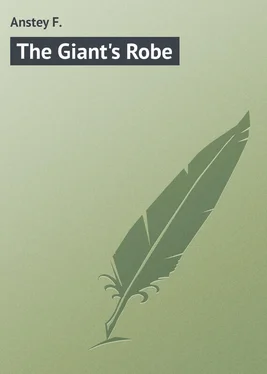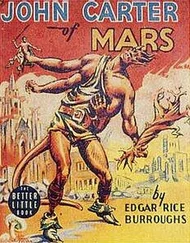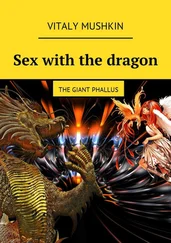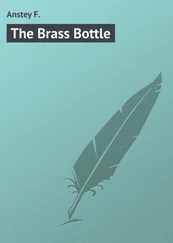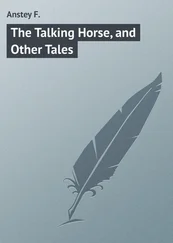F. Anstey - The Giant's Robe
Здесь есть возможность читать онлайн «F. Anstey - The Giant's Robe» — ознакомительный отрывок электронной книги совершенно бесплатно, а после прочтения отрывка купить полную версию. В некоторых случаях можно слушать аудио, скачать через торрент в формате fb2 и присутствует краткое содержание. Издательство: Иностранный паблик, Жанр: foreign_prose, foreign_language, на английском языке. Описание произведения, (предисловие) а так же отзывы посетителей доступны на портале библиотеки ЛибКат.
- Название:The Giant's Robe
- Автор:
- Издательство:Иностранный паблик
- Жанр:
- Год:неизвестен
- ISBN:нет данных
- Рейтинг книги:4 / 5. Голосов: 1
-
Избранное:Добавить в избранное
- Отзывы:
-
Ваша оценка:
- 80
- 1
- 2
- 3
- 4
- 5
The Giant's Robe: краткое содержание, описание и аннотация
Предлагаем к чтению аннотацию, описание, краткое содержание или предисловие (зависит от того, что написал сам автор книги «The Giant's Robe»). Если вы не нашли необходимую информацию о книге — напишите в комментариях, мы постараемся отыскать её.
The Giant's Robe — читать онлайн ознакомительный отрывок
Ниже представлен текст книги, разбитый по страницам. Система сохранения места последней прочитанной страницы, позволяет с удобством читать онлайн бесплатно книгу «The Giant's Robe», без необходимости каждый раз заново искать на чём Вы остановились. Поставьте закладку, и сможете в любой момент перейти на страницу, на которой закончили чтение.
Интервал:
Закладка:
The money transactions caused him the most hesitation. If he took money for another man's work, there was a name, and a very ugly name, for that. But he would not keep it. As soon as he learnt the names of Holroyd's legal representatives, whoever they might be, he would pay the money over to them without mentioning the exact manner in which it had become due. In time, when he had achieved a reputation for himself, he could give back the name he had borrowed for a time – at least he told himself he could do so.
He stood in no danger of detection, or, if he did, it was very slight. Vincent was not the man to confide in more than one person; he had owned as much. He had been reticent enough to conceal his real surname from his publishers, and now he could never reveal the truth.
All this rushed through his mind in a hurried, confused form; all his little vanities and harmless affectations and encouragements of false impressions had made him the less capable of resisting now.
'Well?' said Mr. Fladgate at last.
Mark's heart beat fast. He turned round and faced the publisher. 'I suppose I had better trust you,' he said awkwardly, and with a sort of shamefaced constraint that was admirably in keeping with his confession, though not artificial.
'I think so. Then you are the man – this book "Glamour"'s your own work?'
'If you must have it – yes,' said Mark desperately.
The words were spoken now, and for good or ill he must abide by them henceforth to the end.
CHAPTER X.
REPENTE TURPISSIMUS
NO sooner had Mark declared himself the author of his dead friend's book than he would have given anything to recall his words, not so much from conscience (though he did feel he had suddenly developed into a surprisingly finished scoundrel), as from a fear that his lie might after all be detected. He sat staring stupidly at Mr. Fladgate, who patted him on the shoulder with well-meant encouragement; he had never seen quite so coy an author before. 'I'm very glad to make Mr. Vincent Beauchamp's acquaintance – at last,' he said, beaming with honest pride at the success of his tactics, 'and now we can come to terms again.'
He did not find Mark more difficult to deal with than most budding authors, and in this case Mark was morbidly anxious to get the money part of the transaction over as soon as possible; he could not decide whether his conscience would be better or worse satisfied if he insisted on the best pecuniary terms he could obtain, so in his indecision he took the easier course of agreeing to everything.
'About the title now?' said Mr. Fladgate, when the terms had been reduced to a formal memorandum. 'I don't think I quite like your present one; too moonshiny, eh?'
Mark owned that it did sound a little moonshiny.
'I think, too, I rather think, there's something very like it out already, and that may lead to unpleasantness, you know. Now, can you suggest something else which will give a general idea of the nature of the book?'
As Mark had absolutely no idea what the book was about, he could not.
'Well, Mr. Blackshaw suggested something like "Enchantment," or "Witchery."'
'I don't care about either of those,' said Mark, who found this sort of dissembling unexpectedly easy.
'No,' said Mr. Fladgate, 'No. I think you're right. Now, I had a notion – I don't know what you will think of it – but I thought you might call it "A Modern Merlin," eh?'
'"A Modern Merlin,"' repeated Mark thoughtfully.
'Yes, it's not quite the right thing, perhaps, but it's taking, I think, taking.'
Mark said it was taking.
'Of course your hero is not exactly a magician, but it brings in the "Vivien" part of the story, don't you see?' Of course Mark did not see, but he thought it best to agree. 'Well,' continued Mr. Fladgate, who was secretly rather proud of his title, 'how does it strike you now? it seems to me as good a title as we are likely to hit upon.'
After all, Mark thought, what did it matter? it wasn't his book, except in name. 'I think it's excellent,' he said, 'excellent; and, by the way, Mr. Fladgate,' he added, 'I should like to change the nom de plume : it's a whim of mine, perhaps, but there's another I've been thinking lately I should like better.'
'By all means,' said the other, taking up a pencil to make the necessary alteration on the manuscript, 'but why not use your real name? I prophesy you'll be proud of that book some day; think over it.'
'No,' said Mark, 'I don't wish my real name to appear just yet' (he hardly knew why; perhaps a lingering sense of shame held him back from this more open dishonesty). 'Will you strike out "Vincent Beauchamp," and put in "Cyril Ernstone," please?' For 'Cyril Ernstone' had been the pseudonym which he had chosen long ago for himself, and he wished to be able to use it now, since he must not use his own.
'Very well, then, we may consider that settled. We think of bringing out the book as soon as possible, without waiting for the spring season; it will go to press at once and we will send you the proofs as soon as we get them in.'
'There's one thing, perhaps, I'd better mention,' said Mark suddenly; after he had turned to go a new danger had occurred to him, 'the handwriting of the manuscript is not mine. I – I thought it as well to tell you that beforehand; it might lead to mistakes. I had it copied out for me by – by a friend.'
Mr. Fladgate burst out laughing. 'Pardon me,' he said, when he had finished, 'but really I couldn't help it, you do seem to have been so bent on hoodwinking us.'
'And yet you have found me out, you see,' said Mark, with a very unmirthful smile.
Mr. Fladgate smiled, too, making a little gesture of his hand, thinking very possibly that few precautions could be proof against his sagacity, and they parted.
Mark went down the stairs and through the clerks' room into the street, with a dazed and rather awestruck feeling upon him. He hardly realised the treachery he had been guilty of, the temptation had burst upon him so suddenly, his fall had been made so easy for him, that he scarcely felt his dishonour, nor was he likely to feel it very keenly so long as only good results should flow from it. But he was vaguely conscious that he was not the same Mark Ashburn who had parted from old Shelford not an hour ago in the street there; he was a man with a new hope in his breast, and it might be a new fear, but the hope was near and bright, the fear shadowy and remote as yet: he had only to keep his own counsel and be patient for a while, and the course of events would assuredly bring him the stake he had played so high for.
At home that evening he took down his manuscript novels (which of course he had not burnt) and read them again carefully. Yes; there was power in them, he felt it, a copious flow of words, sparkling wit, and melting pathos. The white heat at which the lines were written surprised even himself. It was humiliating to think that without the subterfuge that had been forced upon him he might have found it impossible to find publishers who would appreciate these merits, for after Messrs. Leadbitter & Gandy's refusal he had recognised this to the full; but now, at least, they were insured against any such fate. A careful reading was absolutely necessary to a proper estimation of them, and a careful reading they had never had as yet, and would receive at last, or, if they did not, it would only be because the reputation he had appropriated would procure them a ready acceptance without any such preliminary ordeal. The great point gained was that they would be published, and after that he feared nothing.
Конец ознакомительного фрагмента.
Текст предоставлен ООО «ЛитРес».
Читать дальшеИнтервал:
Закладка:
Похожие книги на «The Giant's Robe»
Представляем Вашему вниманию похожие книги на «The Giant's Robe» списком для выбора. Мы отобрали схожую по названию и смыслу литературу в надежде предоставить читателям больше вариантов отыскать новые, интересные, ещё непрочитанные произведения.
Обсуждение, отзывы о книге «The Giant's Robe» и просто собственные мнения читателей. Оставьте ваши комментарии, напишите, что Вы думаете о произведении, его смысле или главных героях. Укажите что конкретно понравилось, а что нет, и почему Вы так считаете.
